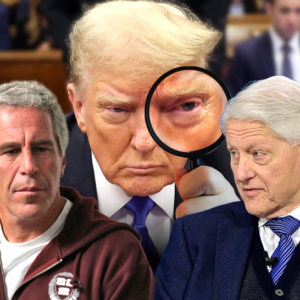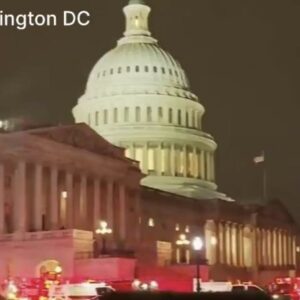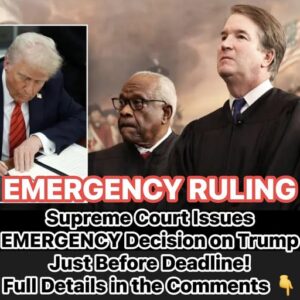A federal judge in Oregon has temporarily blocked President Donald Trump’s attempt to deploy National Guard troops to Portland, marking another legal battle in the long-running dispute between the federal government and Democratic-led states over local control and security measures.The ruling, issued by U.S. District Judge Karin Immergut, stops the administration from sending in troops for at least two weeks. The order follows Trump’s recent announcement that he intended to deploy the National Guard to “restore order” in Portland, which he described as a “war-ravaged” city suffering from prolonged unrest.
Judge Immergut, who was appointed to the federal bench in 2019, found that the state of Oregon and the city of Portland were “likely to succeed” in showing that the president exceeded his constitutional authority under the Tenth Amendment, which reserves powers not delegated to the federal government to the states.
“The evidence suggests that local and state authorities retain the primary responsibility for maintaining public safety within their borders,” Immergut wrote in her ruling. “Federal involvement of this magnitude—without a clear invitation from the state—appears to overstep those boundaries.
The ruling temporarily halts federal preparations that had been underway for a large-scale deployment. The order will remain in effect until October 18, unless the court decides to extend it after reviewing additional arguments from both sides.
Background: Federal vs. Local Control
Portland has experienced recurring demonstrations, vandalism, and violent clashes over the past several years, with tensions rising again in 2025 after renewed protests over policing and federal authority. While city officials have sought to rely on local law enforcement, Trump and his advisers have repeatedly criticized the Portland leadership for what they called a failure to maintain order.
The president’s proposal to send in the National Guard was presented as part of a broader initiative to address what he described as “lawlessness” in major cities, particularly those governed by Democrats. Administration officials argued that federal intervention was justified to protect federal courthouses, government offices, and employees who had been targeted during protests.
However, state and local leaders saw the move as an encroachment on their jurisdiction. They argued that federal involvement would worsen tensions and spark larger demonstrations, echoing concerns raised during earlier federal deployments in 2020 and 2021.
Judge Immergut’s Legal Reasoning
Judge Immergut’s ruling centered on the question of constitutional authority—specifically, whether the president can unilaterally deploy the National Guard within a state without the governor’s consent.
She cited the Tenth Amendment, which limits federal power in matters traditionally handled by state and local governments, such as policing. Immergut also referred to the Posse Comitatus Act of 1878, which restricts the use of military forces for domestic law enforcement except where explicitly authorized by Congress.
In her 36-page decision, the judge wrote that while the federal government does have authority to protect its own property and personnel, that power “does not extend to general law enforcement activities or crowd control.”
“Recent incidents of property damage, while concerning, do not rise to the level that would justify the use of federal troops in state and local policing matters,” she wrote. “The federal government must demonstrate a clear and present need before overriding state authority.”
The ruling was seen as a cautious but firm rebuke of the administration’s broader efforts to expand federal law enforcement powers during times of domestic unrest.
Reaction From Oregon Officials
Oregon’s Attorney General Dan Rayfield, who led the state’s lawsuit against the Trump administration, welcomed the ruling as a major victory for local control and constitutional balance.
“The people of Oregon have the right to determine how public safety is managed in their communities,” Rayfield said. “This ruling reaffirms that the federal government cannot simply deploy troops in our streets without following the rule of law.”
Governor Tina Kotek also expressed relief, saying that sending federal forces into Portland would have likely escalated tensions rather than reduced them.
“We’ve seen how outside intervention can inflame already volatile situations,” Kotek said. “Our focus should be on de-escalation and rebuilding trust between residents and law enforcement—not militarizing our neighborhoods.”
City officials echoed similar sentiments. One member of the Portland City Council said that the presence of federal troops would have “sent the wrong message” to communities still healing from years of unrest.
“The last time federal agents came to Portland, it created more division,” the council member said. “We need cooperation, not confrontation.”
The Administration’s Response
The Trump administration immediately criticized the decision, with a White House spokesperson calling it “a misguided ruling that endangers public safety.”
The administration argued that the president’s authority as commander in chief under Article II, Section 2 of the Constitution gives him the power to act when federal property or employees are threatened.
“The President will always take the necessary steps to protect federal assets and personnel,” the spokesperson said. “This temporary order only delays our ability to respond effectively to ongoing threats.”
Legal analysts say the administration will likely appeal the ruling to the Ninth Circuit Court of Appeals, where it may argue that the deployment was not an attempt to assume local policing duties but rather a defensive measure to safeguard federal infrastructure.
A Justice Department official, speaking anonymously, said the administration is confident that “the courts will ultimately recognize the president’s lawful authority to defend federal property when local governments refuse to act.”
Experts Weigh In
Legal experts are divided on the implications of the ruling. Some view it as a crucial check on presidential power, while others warn that it could limit the federal government’s ability to respond to emergencies.
Professor Eleanor Watkins, a constitutional law scholar at the University of Oregon, said the decision underscores the importance of maintaining the balance of power between federal and state governments.
“The courts are reminding the executive branch that constitutional authority has limits,” Watkins said. “While the president has significant powers in times of crisis, those powers are not absolute.”
However, former federal prosecutor Michael Hanley argued that the decision could complicate future responses to domestic unrest.
“If local governments are unable or unwilling to restore order, there must be a mechanism for federal intervention,” Hanley said. “Completely removing that option could leave federal facilities and employees vulnerable.”
Next Steps and Broader Implications
The temporary restraining order is set to expire on October 18, though Oregon’s attorney general has already announced plans to request an extension. In the meantime, federal preparations for deployment have been suspended.
The Trump administration is expected to file an appeal in the coming days. Legal observers predict the case could eventually reach the Supreme Court, given its potential to clarify the limits of presidential power in deploying the National Guard domestically.
Beyond the legal ramifications, the ruling has reignited public debate over how to address unrest in major U.S. cities. Supporters of the court’s decision see it as a victory for state sovereignty and civil liberties. Critics, however, warn that restricting federal action could embolden violent groups and undermine national security.
In Portland, residents remain divided. Some say they feel safer knowing federal troops will not be entering the city, while others fear that local authorities lack the resources to maintain control if unrest flares up again.
“We’ve been through so much,” said one Portland resident. “People just want peace, but it feels like both sides are fighting for power instead of solutions.”
As the standoff between state and federal authorities continues, one thing remains clear: the struggle over who controls America’s streets—local leaders or Washington—shows no sign of ending soon.





